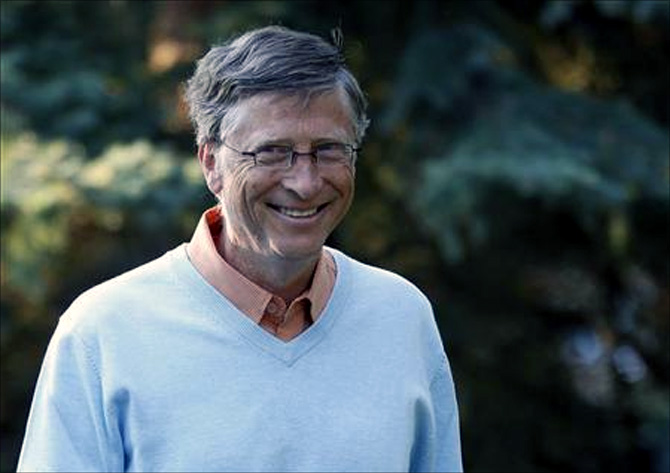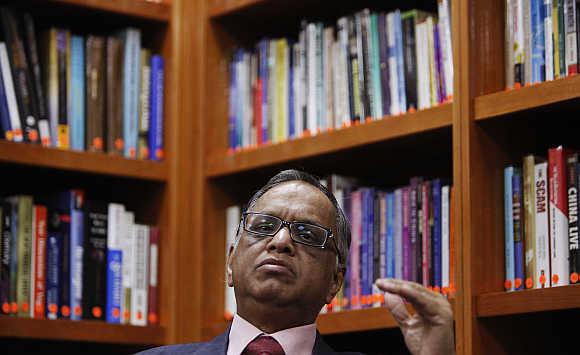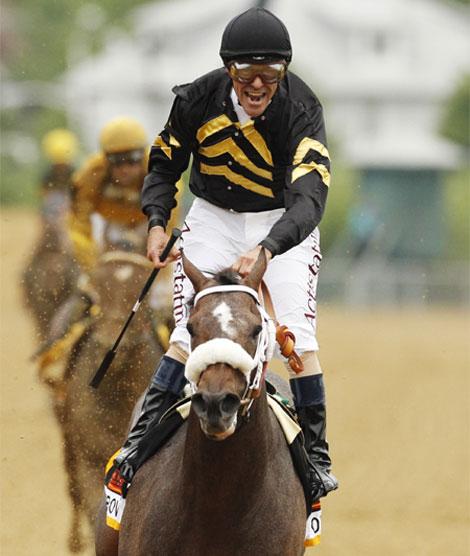Photographs: Jim Urquhart/Reuters Kavil Ramachandran
Founders should realise that institution-building is like a relay race, notes Kavil Ramachandran
Most organisations do not last even two generations, let alone evolve themselves to become lasting institutions.
Indeed, founders feel shattered.
They cannot imagine such a scenario.
They seldom realise that they themselves could be the cause of death of their baby and that is often because they do not hand over their creation to the safe hands of someone else in time, and leave the scene.
Why?
Starting with a passionate idea of an organisation, the founder is expected to lead its growth and transformation, fully aware of the organisational challenges of identifying and blending resources to take advantage of the opportunities.
The most important value that a founder should always possess and practice is custodianship.
Leaders with this value believe that they have a responsibility to preserve, enrich and pass this value over to their succeeding stakeholders.
. . .
Why do founders find it hard to step down?
Image: N R Narayana Murthy, Founder and Chairman, Infosys, during an interview with Reuters at the company's office in Bengaluru.Photographs: Vivek Prakash/Reuters
Such a value has a number of manifestations. Founders will see the organisation beyond themselves.
Their decisions will be driven basically by a single criterion of relevance to the organisation.
Founders should realise that institution-building is like a relay race.
Founding leaders who set norms for the successors to follow do well for the creation of institutions out of organisations.
Precisely for the same reason, a founder is expected to listen to others encouraging criticism and disagreements.
Such leaders know that there are smarter and more capable people around, and there are many ways of addressing organisational challenges.
. . .
Why do founders find it hard to step down?
Photographs: Reuters
Founders' dilemma: It is not that founders of well-established organisations are intellectually timid not to know about institution-building or even the need to have a relay race for succession.
In fact, at the top, in their lonely palace, founders constantly face a number of dilemmas, to some of which they are unable to find answers, and on some of which they never act.
There are two kinds of dilemmas.
One is related to the organisations.
Most founders who grow up along with the organisations tend to believe that they know the organisation and its requirements much better than anyone else.
They do not expect anyone to have the same level of parental passion and commitment to take care of the organisation in the future.
In the absence of identifying any successor with adequate capabilities or attempting to find one, the founder takes it as a fait accompli that they will continue to play an active role.
The other dilemma is about what to do next.
Also, many founders do not plan or even visualise a situation in which they will not be indispensable to the organisation they had passionately helped create.
. . .
Why do founders find it hard to step down?
Photographs: Jonathan Ernst/Reuters
Founder departure -- have a strategy: Founders then need to prepare the ground for their own departure.
They need three things.
One, a strategy for the organisation and development of its leadership; two, to decide what they would do once they move out of the organisation; and three, to decide a date for completing the transition and stick to it.
(i) Prepare the organisation: The founder has to nurture a pool of talented people with leadership qualities in the organisation.
Succession then happens like a smooth relay race, with all runners sharing a passionate goal, and doing everything to accomplish it.
This takes time, but enables the founder to leave the stage without any worries about the organisation's future.
. . .
Why do founders find it hard to step down?
Photographs: Reuters
(ii) Monitor relevance: Given that an organisation and the founder are two separate entities, founders have to regularly monitor the relevance of their capabilities for the future success of the organisation.
Some warning signals are: gradual loss in market share and drop in performance, frustration and departure of key employees, difficulty in attracting talent and losing respect in the market place.
In most cases, founders tend to find convenient explanations for a less than comfortable situation.
Founders need trustworthy individuals who are encouraged to express their views, particularly dissenting ones.
Founders should seek frank feedback from their board on their role and contribution. They need ‘detached passion’.
The image is used for representational purpose only
. . .
Why do founders find it hard to step down?
Photographs: Reuters
Time to change personal portfolio: As one grows old, the ability to take risk naturally declines, and so, it is almost impossible for a person with a proven track record in one area to start exploration and experimentation in new areas that may not always prove to be so successful.
Everyone has a fear of failure in different degrees.
This is particularly so for those who have spent a lifetime in a single business.
Besides, in most cases, people do not realise or recognise their own diminished relevance in a changing society.
Founders should develop a personal strategy for themselves and review it every five to ten years, especially once they turn 50 years, and retain flexibility to reconfigure their portfolio of activities.
They need to cultivate interests in other areas, related or not.
It is important to start reflecting over oneself and acquire new personal capabilities early on, particularly in terms of attitude and willingness to change.
This alone will enable founders to shift gears at short notice.
They should start redefining their roles more frequently after 50 and empower more capable and passionate people to take charge.
Once the ground is prepared, founders will have less difficulty to move on based on a planned schedule.
It is always useful to remember: Ask not for whom the bell tolls, it tolls for thee!
Kavil Ramachandran is Thomas Schmidheiny Chair Professor of Family Business and Wealth Management at the Indian School of Business








article